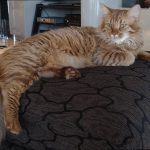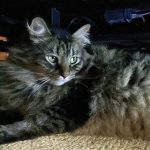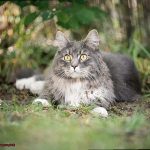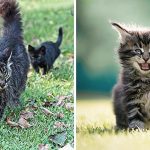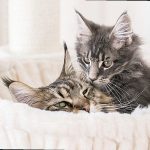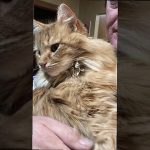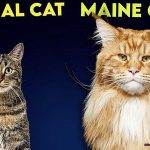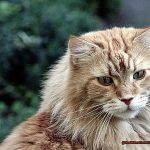As proud owners and devoted enthusiasts of these extraordinary cats, we’ve often wondered if their independent nature means they have attachment issues. Today, we embark on a quest for answers, diving deep into the realm of feline behavior to shed light on this intriguing question.
With their tufted ears and impressive size, Maine Coons easily capture our hearts with their majestic charm. But beneath that regal exterior lies a quirky personality that has sparked much speculation. Some argue that these magnificent creatures possess a distinct predisposition for attachment issues, while others believe their independence is just a cover-up.
To uncover this fascinating enigma, we must explore the intricacies of feline behavior. Studies have shown that many cats, regardless of breed, exhibit signs of attachment-related behaviors towards their owners. These can range from following us around the house to expressing distress when separated for extended periods. However, it’s important to remember that the intensity and duration of these behaviors can vary greatly among individual cats.
Maine Coons are known for being sociable and affectionate, which leads some to believe they’re more prone to attachment-related behaviors. Their gentle nature and willingness to interact with humans naturally make us think they demand constant attention and companionship. But here’s where it gets interesting.
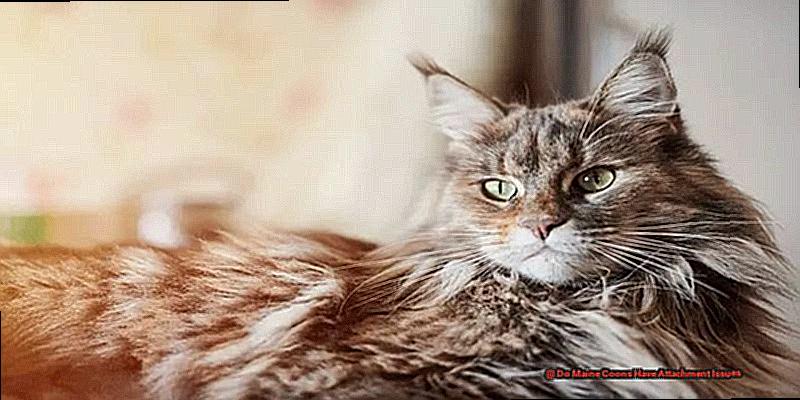
While Maine Coons may win us over with their desire for companionship, it’s crucial to recognize that they also possess an innate independence that sets them apart. These cats developed in harsh climates where they had to fend for themselves for long stretches of time. This resilience may contribute to their ability to adapt to solitude and make them less susceptible to severe attachment issues compared to other breeds.
To truly understand the intricate bond between Maine Coons and their owners, we must acknowledge that attachment varies from cat to cat. It’s influenced by genetics, early experiences, and the environment in which they were raised. So, while it’s possible for a Maine Coon to exhibit attachment-related behaviors, it’s not a defining trait of the entire breed.
In the upcoming segments of this blog post series, we’ll delve into specific behaviors exhibited by Maine Coons that may be mistaken for attachment issues. We’ll also explore strategies to foster a healthy bond with your Maine Coon and address any concerns you may have about their independence.
Do Maine Coons have attachment issues
Maine Coons are renowned for their friendly and affectionate nature. They often form strong bonds with their human companions and enjoy being involved in their daily activities. However, like all cats, Maine Coons can exhibit varying degrees of attachment behavior. In this blog post, we will explore the potential causes of attachment issues in Maine Coons and provide helpful tips on how to address them.
Understanding Attachment Issues in Maine Coons:
Attachment issues in Maine Coons can manifest as excessive clinginess, separation anxiety, or even aggression when their owners are not present. These behaviors can be distressing for both the cat and the owner. It is essential to recognize that attachment issues are not a characteristic of the entire breed but rather individual traits influenced by various factors.
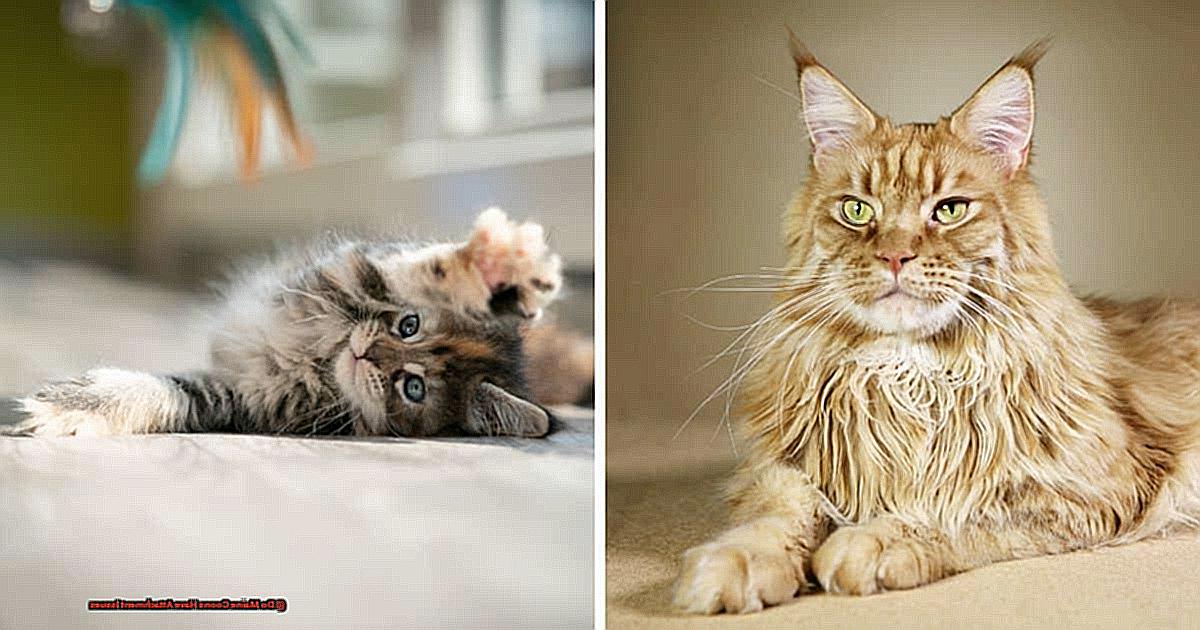
Causes of Attachment Issues:
- Early Socialization: Cats that have not been adequately socialized during their early development stages may be more prone to developing attachment issues.
- Trauma or Disruptions: Maine Coons that have experienced abandonment, neglect, or significant changes in their environment may develop attachment issues as a result.
- Individual Temperament: Each cat has its unique personality, and some Maine Coons may naturally be more independent or clingy than others.
Addressing Attachment Issues:
- Consultation with Professionals: If you suspect that your Maine Coon has attachment issues, it is recommended to seek guidance from a veterinarian or an animal behaviorist who can assess the situation and provide tailored advice.
- Behavioral Modification Techniques: A professional may suggest specific techniques to help alleviate your cat’s anxiety or fear, such as gradual desensitization or counter-conditioning.
- Medication: In severe cases, medication prescribed by a veterinarian may be necessary to help manage your cat’s attachment issues.
Prevention is Key:
While attachment issues can occur in any cat, there are steps you can take to prevent them from arising in the first place:
- Early Socialization: Ensure your Maine Coon is properly socialized from a young age by exposing them to various people, animals, and environments.
- Consistent Routine: Establish a stable and predictable routine for your cat, including regular feeding times, playtime, and grooming sessions.
- Mental and Physical Stimulation: Provide your Maine Coon with plenty of toys, scratching posts, and interactive play sessions to keep them mentally and physically engaged.
- Quality Time: Spend dedicated one-on-one time with your cat, engaging in activities they enjoy, such as brushing, playing, or simply cuddling.
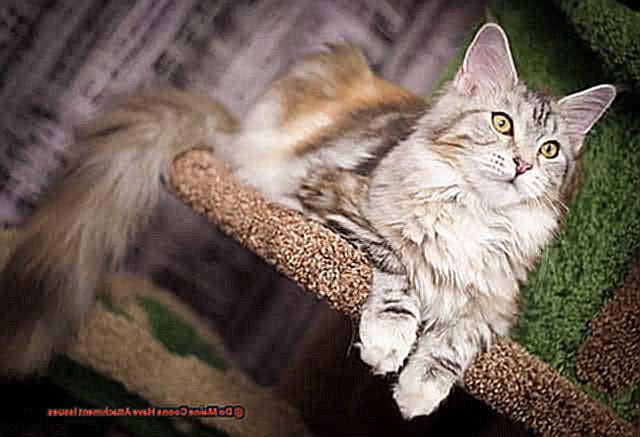
The Friendly and Affectionate Nature of Maine Coons
Maine Coons, also known as the gentle giants of the cat world, are renowned for their friendly and affectionate nature.
These lovable felines make excellent companions for individuals and families alike. Whether you’re looking for a cuddle buddy or a playmate, a Maine Coon is sure to fit the bill.
They Crave Human Interaction
One of the defining characteristics of Maine Coons is their social nature. These cats actively seek out human interaction and enjoy being part of the family. They will often follow their owners around the house, wanting to be close to them and seeking physical contact and attention.
It’s not uncommon to find a Maine Coon curled up on your lap or nuzzling against your leg.
Gentle Giants with a Dog-Like Personality
Maine Coons have earned the nickname “gentle giants” due to their large size and gentle demeanor. Despite their impressive stature, they are generally good-natured and get along well with people, including children and other pets. In fact, their sociable nature has led them to be referred to as “dog-like” cats. They exhibit loyalty and affectionate behavior similar to that of dogs, making them a joy to have around.
Fostering Strong Bonds
To foster a strong bond with your Maine Coon, it’s important to provide them with love, attention, and regular social interaction. Spending quality time together, engaging in play sessions, and creating a safe and comfortable environment are key factors in building a strong connection with your furry friend.
Keep in mind that while Maine Coons are generally friendly, individual personalities may vary. Some cats may be more independent or less inclined to seek constant attention.
Preventing Boredom and Strengthening Bonds
Maine Coons are intelligent cats that require mental stimulation. Providing them with toys, puzzle games, and interactive play can help prevent boredom and strengthen the bond between you and your cat. This will not only keep them physically active but also mentally engaged.
Do Maine Coons Have Attachment Issues?
It is important to note that not all Maine Coons will have attachment issues, and individual personalities can vary greatly among cats. In this section, we will discuss the potential attachment issues of Maine Coons and how owners can help alleviate them.
Possible Attachment Issues in Maine Coons
Attachment issues in Maine Coons can manifest in various ways. Some cats may exhibit excessive clinginess, constantly seeking attention and physical contact from their owners.
Others may experience separation anxiety, becoming distressed or exhibiting destructive behavior when left alone. Additionally, Maine Coons may have difficulty adjusting to new environments or people, displaying signs of fear or withdrawal.
Causes of Attachment Issues
One possible explanation for attachment issues in Maine Coons is their history as working cats on farms and ships. These cats were highly valued for their hunting skills and companionship, leading to close bonds with their human caretakers. As domesticated pets, Maine Coons may retain some of these instincts and exhibit attachment-related behaviors.
Another factor that could contribute to attachment issues is the breed’s intelligence and sensitivity. Maine Coons are highly intelligent and emotionally perceptive, making them more susceptible to developing attachment issues.
Changes in routine or environment, such as moving to a new home or the addition of new pets or family members, can also trigger attachment-related behaviors in Maine Coons.
Alleviating Attachment Issues
To help alleviate attachment issues in Maine Coons, it is important for owners to understand and address these behaviors. Here are some strategies you can try:
- Provide a stable and predictable environment: Maintaining a consistent routine and creating a calm and secure environment can help reduce anxiety in Maine Coons.
- Engage in regular playtime and interactive activities: Maine Coons are active and intelligent cats that require mental stimulation. Regular play sessions and interactive toys can help redirect their energy and provide a positive outlet for their need for attention.
- Offer mental stimulation: Providing puzzle toys, treat-dispensing toys, or setting up an indoor cat tree can help keep Maine Coons mentally stimulated and prevent boredom.
- Gradually desensitize the cat to separation: If your Maine Coon exhibits separation anxiety, gradually expose them to short absences, starting with a few minutes and gradually increasing the duration. Pair these absences with positive reinforcement, such as treats or praise, to create positive associations with being alone.
- Seek professional advice: If your Maine Coon’s attachment issues persist or worsen despite your efforts, it may be beneficial to seek advice from a veterinarian or animal behaviorist who specializes in cat behavior.
Conclusion
Understanding the Individual Personality of a Maine Coon
If you’re lucky enough to have a Maine Coon as your furry companion, then you know just how special and loving these majestic cats can be. But have you ever wondered if your Maine Coon’s affectionate nature is just their personality or if they might have attachment issues? Well, fear not, because we’re here to shed some light on understanding the individual personality of a Maine Coon.
Maine Coons are renowned for being social butterflies. They thrive on human companionship and love nothing more than spending quality time with their owners. Unlike some other cat breeds that may prefer their independence, Maine Coons are all about forming strong bonds with their humans. From following you around the house to curling up in your lap, these cats know how to make you feel adored.
But hold your horses. Just because your Maine Coon loves showering you with attention doesn’t automatically mean they have attachment issues. Cats, in general, are known to form deep bonds with their owners and seek affection. It’s part of what makes them such wonderful companions.
However, it’s important to remember that each Maine Coon has its own unique personality. Some may be extroverted and outgoing, always seeking attention and physical contact. These cuddle bugs will follow you around like a loyal shadow, meowing for attention and trying to claim your lap as their throne. And let’s be honest, who doesn’t love having a furry sidekick?
On the flip side, some Maine Coons may be more introverted and independent. They enjoy spending time alone, exploring their surroundings, and engaging in solitary play. These cats may not demand constant attention or physical contact but instead appreciate having their own space. It doesn’t mean they don’t love you any less, they just have a different way of showing it.
Understanding your Maine Coon’s individual personality is crucial in determining whether or not they have attachment issues. While clingy behavior can be endearing, it can also become overwhelming if your cat becomes too dependent on constant attention. On the other hand, a more independent Maine Coon doesn’t necessarily have attachment issues; they simply have a more introverted personality and prefer their alone time.
So, how can you foster a healthy and balanced relationship with your Maine Coon, regardless of their personality? The key lies in providing them with love, attention, and a stimulating environment. Make sure to engage in regular playtime sessions to keep them mentally and physically stimulated. Offer plenty of toys, scratching posts, and climbing trees to satisfy their natural instincts. And most importantly, create a stable and secure environment where they feel safe and loved.
The Benefits of Providing a Balanced Environment for Maine Coons
Maine Coons are known for their friendly and affectionate nature, making them a cherished addition to any household. To ensure their overall well-being and prevent any potential attachment issues, it is important to create a balanced environment that meets their physical and mental needs. In this blog post, we will explore the benefits of providing such an environment for Maine Coons and how it can contribute to a harmonious relationship between cat and owner.
Prevention of Separation Anxiety:
Maine Coons are highly social animals that thrive on human companionship. Leaving them alone for long periods can lead to feelings of loneliness and anxiety, resulting in destructive behavior or even depression. By creating a balanced environment that offers mental and physical stimulation, owners can help prevent separation anxiety and promote a calmer and happier cat.
Promotion of Healthy Exercise and Weight Management:
Maine Coons are one of the largest domesticated cat breeds, known for their muscular build and agility. Regular exercise is crucial to maintaining their physical health and preventing obesity. Providing climbing trees, scratching posts, interactive toys, and engaging play sessions with owners helps keep them active, agile, and within a healthy weight range.
Mental Stimulation to Prevent Boredom:
Maine Coons are intelligent cats that enjoy problem-solving activities and games. Mental stimulation not only keeps them entertained but also prevents behavioral issues that may arise from boredom or frustration. Puzzle toys, treat-dispensing devices, and interactive playtime are great ways to challenge their cognitive abilities while keeping them mentally sharp.
Spaces for Retreat and Comfort:
While Maine Coons are generally affectionate and social, they also appreciate having quiet spaces where they can relax and recharge. Providing cozy hiding spots or designated areas for them to retreat to helps them feel secure in their surroundings. This balance between social interaction and alone time ensures their overall well-being.
Promoting a Harmonious Household:
When Maine Coons have their physical and mental needs met, they are less likely to engage in destructive behavior or exhibit attention-seeking tendencies. This creates a happier and more harmonious coexistence between the cat and its human family, fostering a fulfilling and rewarding relationship for both parties involved.
Signs of Excessive Clinginess in Maine Coons
Maine Coons are known for their affectionate and loving nature, but sometimes their attachment can become excessive and clingy. While it’s natural for cats to seek attention and companionship from their owners, excessively clingy behavior can indicate underlying issues that need to be addressed. Here are some signs to look out for:
- Constantly Following You Around: One sign of excessive clinginess in Maine Coons is when they constantly follow their owners around the house. They may even try to be in the same room as their owners at all times, even going as far as scratching on doors or meowing loudly if they are separated.
- Overly Demanding of Attention: Another sign is when Maine Coons become overly demanding of attention. They may constantly seek physical contact by rubbing against their owners or sitting on their laps. They may also paw at their owners or meow incessantly until they receive attention.
- Separation Anxiety: Maine Coons with attachment issues may become anxious or stressed when left alone for even short periods of time. They may display signs of separation anxiety, such as destructive behavior, excessive meowing, or urinating outside the litter box.
- Possessive Behavior: Excessively clingy Maine Coons may also display possessive behavior towards their owners. They may become territorial over their owners and try to prevent them from interacting with other people or pets. This can manifest as hissing, growling, or even aggression towards others who approach their owners.
- Attention-Seeking Behaviors at Night: Some Maine Coons with attachment issues may exhibit attention-seeking behaviors during the night. They may wake their owners up repeatedly by pawing at them, meowing loudly, or even biting or scratching to get attention.
It’s important to note that not all clingy behavior in Maine Coons is necessarily a sign of a problem. Some cats are naturally more dependent and affectionate than others. However, if the clinginess becomes excessive and starts interfering with daily life or causing distress to both the cat and the owner, it may be a sign of an attachment issue that needs to be addressed.
If you suspect that your Maine Coon has attachment issues, it’s recommended to consult with a veterinarian or an animal behaviorist for guidance. They can help determine the underlying cause of the clinginess and develop a plan to address it.
How to Prevent Unhealthy Attachment Behaviors in Maine Coons
Maine Coons are known for their friendly and affectionate nature, but just like humans, they can develop attachment issues if not properly managed. In this guide, we will explore effective strategies to prevent unhealthy attachment behaviors in your beloved Maine Coon.
By providing mental and physical stimulation, establishing routines, creating safe spaces, promoting socialization, and seeking professional help when needed, you can foster a balanced and harmonious relationship with your furry friend.
Mental and Physical Stimulation:
Maine Coons are intelligent cats that require both mental and physical stimulation to stay happy and healthy. Engage in interactive play sessions with toys that encourage them to chase, pounce, and hunt. Puzzle toys and treat-dispensing toys can also provide mental stimulation. Regular exercise through play helps to release excess energy and prevent boredom, which can contribute to unhealthy attachment behaviors.
Establish Routines:
Cats thrive on predictability, so establish a routine for your Maine Coon. Set regular feeding times, playtimes, and rest times. This consistency helps them feel secure, reduces anxiety, and provides structure to their day. By sticking to a schedule, your Maine Coon will know what to expect and feel more confident in their environment.
Provide Safe Spaces:
Create a designated area or safe space for your Maine Coon where they can retreat when they need alone time. This could be a cozy cat bed or a specific room equipped with their essentials like a litter box, water bowl, toys, and scratching posts. Respect their need for solitude and allow them to have their own space where they can relax and recharge.
Socialization:
Expose your Maine Coon to different people, animals, and environments from a young age to help them develop social skills and reduce the likelihood of over-attachment to only one person. Gradually introduce them to new experiences, such as visitors or other pets, in a positive and controlled manner. This will help them feel comfortable and confident in various situations.
Positive Reinforcement Training:
Use positive reinforcement techniques like clicker training to teach your Maine Coon basic commands and reinforce their independence. Reward good behavior with treats or praise when they display calmness and contentment in their own space. This encourages positive behaviors while discouraging clingy or attention-seeking behaviors.
Seek Professional Help:
If your Maine Coon’s attachment behaviors become severe or unmanageable despite your efforts, consult with a veterinarian or animal behaviorist. They can provide expert advice tailored to your cat’s specific needs and recommend additional strategies or interventions.
Connecting with Your Maine Coon Through Playtime and Stimulation
Are you looking for ways to strengthen the bond with your Maine Coon? Look no further. In this section, we will explore the benefits of connecting with your Maine Coon through playtime and stimulation. Let’s dive in.
Playtime is not just a fun activity for your Maine Coon, but it also helps to build a strong relationship between you and your furry friend. Maine Coons are social cats that thrive on attention, so engaging them in play fulfills their need for interaction. Regular play sessions can also prevent behavioral issues that may arise from boredom or lack of mental stimulation.
So, how can you stimulate your Maine Coon? Interactive toys are a great option. Puzzle toys, treat dispensers, and wand toys can engage your cat’s natural hunting instincts while providing mental stimulation. For example, puzzle toys like food puzzles or treat balls make your Maine Coon use their problem-solving skills to access the reward. Not only does this provide mental stimulation, but it also helps prevent overeating or fast eating habits.
Wand toys are another fantastic option for interactive play. These toys simulate prey-like movements, triggering your cat’s natural hunting instincts. By moving the wand in different patterns, you can engage your Maine Coon in a chase, providing both physical exercise and mental stimulation.
In addition to interactive toys, it’s important to provide a variety of play options for your Maine Coon. Scratching posts, climbing trees, and tunnels are all great additions to their play area. Maine Coons love heights, so having a tall cat tree or shelves for them to climb on satisfies their curiosity and gives them a sense of security.
Don’t forget to set aside dedicated playtime each day. Whether it’s a quick 15-minute session in the morning or an evening playtime routine, consistency is key. Maine Coons are intelligent cats that quickly learn routines, so having a regular play schedule helps them feel secure and connected to their owners.
During playtime, pay attention to your Maine Coon’s body language and adjust accordingly. Some cats may prefer a more active play style, while others enjoy gentle interactions. By observing their cues and finding what types of play they respond to best, you can make playtime more enjoyable for both of you and deepen your bond.
Recognizing When Your Cat Needs More Independence
Is your Maine Coon cat acting a bit too clingy lately? Are they constantly demanding attention and following you around like a shadow? Well, it may be a sign that your feline friend needs a little more independence. As much as we love showering our cats with affection, they also need their space to explore and be their own boss. So, how can you tell if your Maine Coon is craving more freedom? Let’s take a closer look at some signs to watch out for:
- Excessive clinginess: While it’s natural for cats to seek attention and affection, an excessive need for constant contact may indicate that they are feeling too dependent on you. If your Maine Coon is constantly pawing at your leg or meowing for attention, it’s time to give them some room to breathe.
- Destructive behavior: Cats can be mischievous little creatures, especially when they’re bored or feeling anxious. If you find your Maine Coon scratching furniture, knocking things off shelves, or tearing up household items, it’s a clear cry for more independent play and exploration.
- Changes in appetite: Cats are creatures of routine, and any disruptions or changes in their environment can lead to stress or anxiety. If your Maine Coon suddenly loses interest in food or starts eating excessively, it’s important to consider whether they are feeling overwhelmed and need some alone time.
- Excessive grooming: Grooming is a natural behavior for cats, but if you notice your Maine Coon obsessively licking themselves to the point of causing bald patches or skin irritations, it may be a sign of stress or anxiety. Providing them with more opportunities for independent play and mental stimulation can help alleviate these issues.
Also Read: Why Does My Cat Hump Me
Conclusion
In conclusion, it can be said that Maine Coons do not have attachment issues.
These majestic felines are known for their affectionate and sociable nature, forming strong bonds with their human companions. They thrive on companionship and love being part of a family.
Their loyal and loving nature makes them the perfect companion for those seeking a devoted feline friend.
